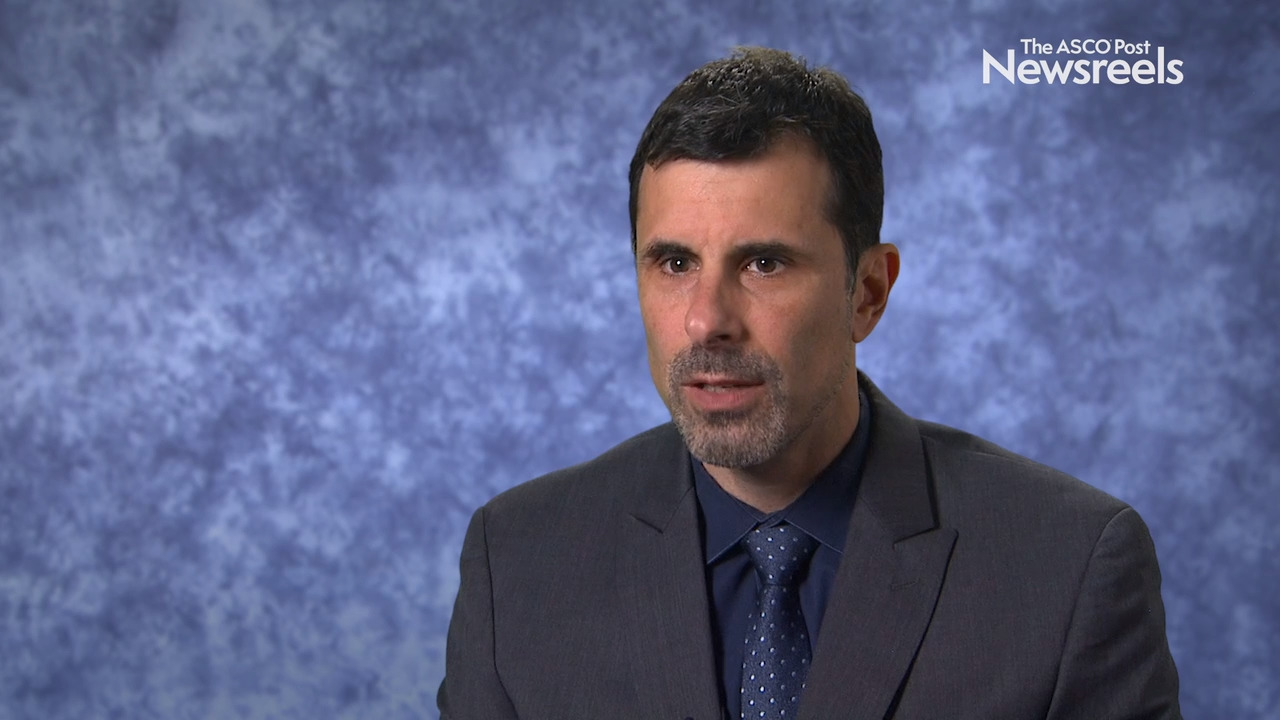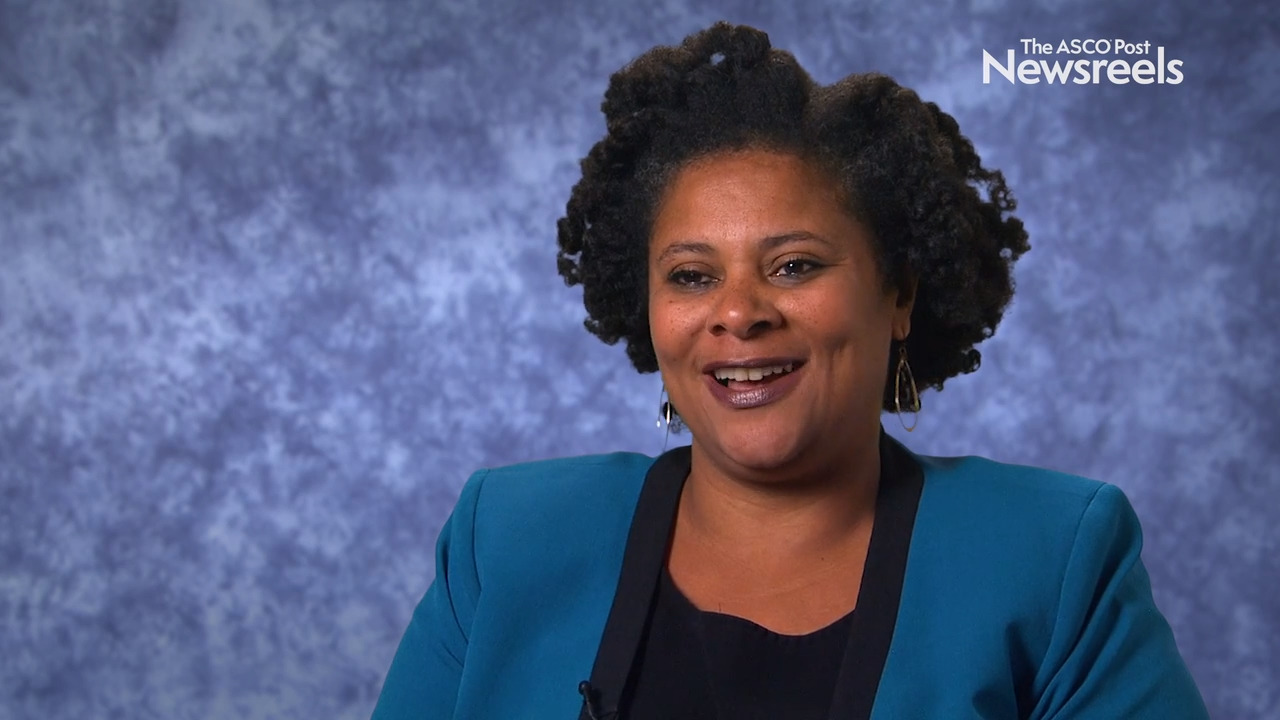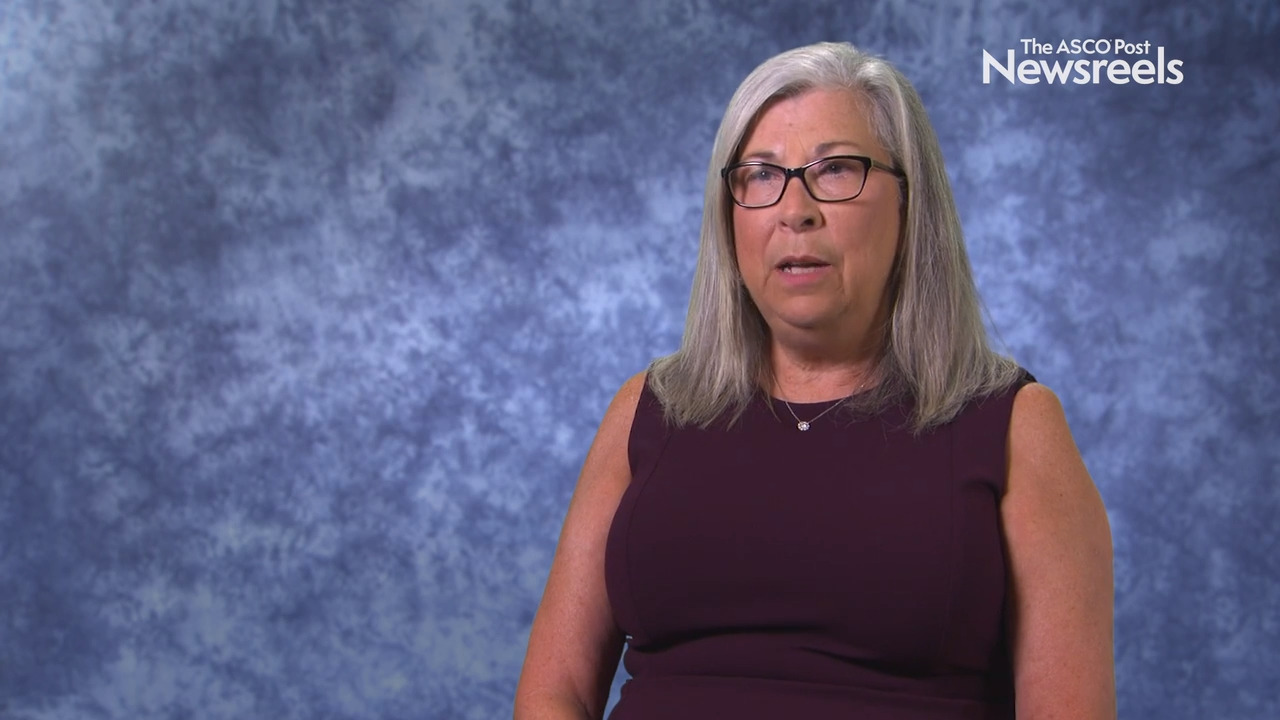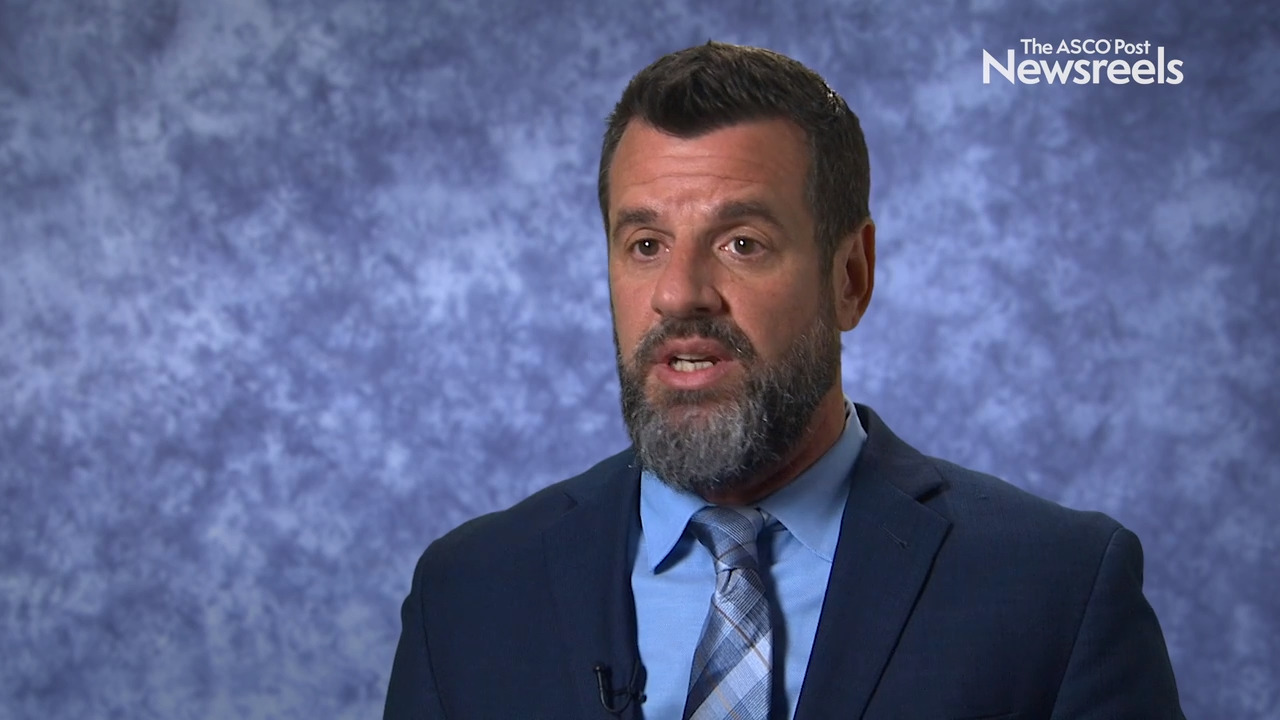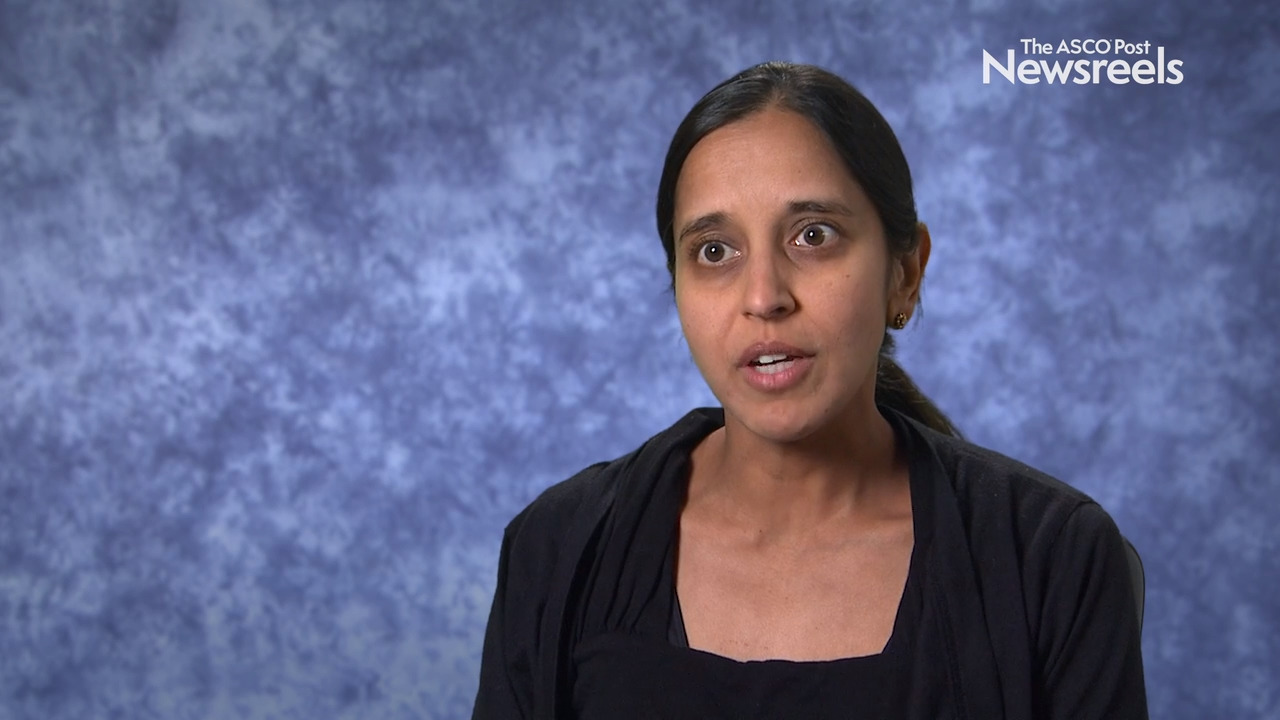Joseph O. Jacobson, MD, on Suffering, Systems, and Safety: The Joseph V. Simone Award Lecture
2019 Quality Care Symposium
Joseph O. Jacobson, MD, of Dana-Farber Cancer Institute, and this year’s recipient of the award for excellence in quality cancer care, discusses the need for quality improvement (QI) to encompass systems of care, the role of QI in preventing suffering, how poor quality affects patient safety, and the ways in which oncologists can learn from errors in other industries.
Bernardo H. L. Goulart, MD, of Seattle Cancer Care Alliance, discusses his findings that high out-of-pocket costs for oral tyrosine kinase inhibitors may lower survival rates, shorten the duration of therapy, and reduce the number of prescriptions for patients with metastatic EGFR- or ALK-positive non–small cell lung cancer (Abstract 3).
Karen M. Winkfield, MD, PhD, of the Wake Forest Baptist Medical Center, discusses cultural factors that contribute to cancer care disparities, the role of national policy in addressing inequities in access to care, and what local institutions can do to improve the situation.
Grace C. Hillyer, EdD, MPH, of Columbia University Mailman School of Public Health, discusses the many barriers to enrolling patients in clinical trials, most notably different attitudes toward and perceptions about research studies among clinicians vs patients. Her findings point to the need for better communication between the two groups and more patient input (Abstract 170).
Matthew B. Schabath, PhD, of H. Lee Moffitt Cancer Center and Research Institute, discusses the disparities in cancer care among members of the LGBTQ community and the need to collect more data in order to close that gap.
Manali I. Patel, MD, of Stanford Cancer Center, discusses enhancing value for patients with cancer treated by community practitioners at the end of life by also utilizing trained lay health workers in a novel intervention that reduced the use of acute care and emergency department visits while improving quality of life.
